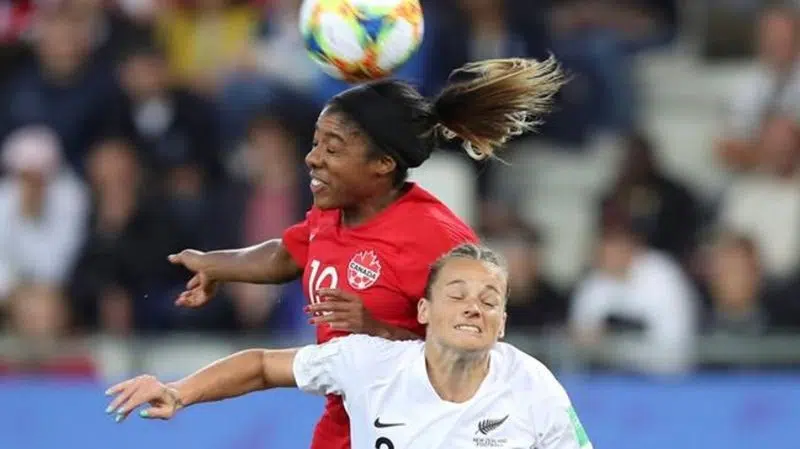
Female soccer players more likely to have medical assessments after head trauma
TORONTO — Half of elite female soccer players who suffered a head-collision event received medical assessments, compared to a third of male players, according to a Canadian study published on Tuesday in the Journal of the American Medical Association.
Researchers reviewed 52 matches from the 2019 FIFA Women’s World Cup and monitored the games for the frequency and medical assessment of head collision events, time stopped for assessment, and visible concussion signs. The data was compared to the 2014 and 2018 Men’s World Cups and the 2016 UEFA Euro Cup.
In the matches reviewed, 84 per cent of female athletes and 88 per cent of male athletes showed two or more visible signs of concussion after a head collision event, including clutching of the head or disequilibrium.
The median time that play was stopped for a medical assessment in women’s tournaments was 70 seconds compared to about 50 seconds in men’s matches. A minimum of 10 minutes is required to perform a concussion assessment.


